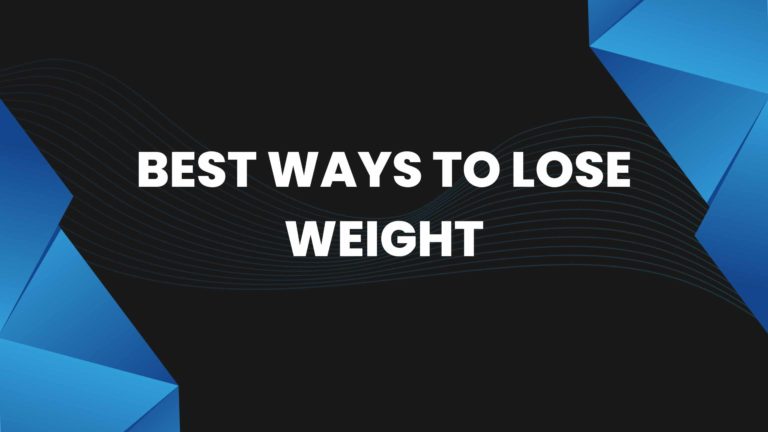Get Zen and Slim: How Weight Loss Meditation Works
Let’s face it – losing weight is hard. From counting calories to spending hours at the gym, it often feels like an uphill battle with no end in sight. But what if there was a way to make this journey a little easier? What if you could harness the power of meditation to not only relax your mind but also shed those stubborn pounds? Enter weight loss meditation – a groundbreaking technique that combines ancient mindfulness practices with modern science-backed strategies for lasting weight loss success. Get ready to discover how tapping into your inner peace can transform not just your body, but also your entire relationship with food and wellness.
What is Meditation for Weight Loss

Meditation for weight loss is more than just losing weight. It helps us understand our thoughts and feelings about food and our bodies. When we meditate, we observe our thoughts and feelings without judgment. This helps us notice our eating habits and tell the difference between real hunger and emotional eating.
Meditation also helps us stay focused and calm, reducing stress and taking care of ourselves. Stress often leads to eating unhealthy foods. When we meditate regularly, we become more aware of what our bodies need instead of letting stress or emotions control our food choices. This mindfulness helps us make healthier decisions about what and how much we eat, leading to weight loss and overall well-being.
Benefits of Weight Loss Meditation
Weight loss meditation is an effective tool for achieving and maintaining a healthy weight. Many people struggle with weight loss because they focus solely on diet and exercise, neglecting the mental aspect of their journey. Below are some benefits of weight loss meditation
Mindful Eating and Portion Control:
Weight loss meditation promotes mindful eating, helping you become more aware of what you consume and why. By paying close attention to the sensations, tastes, and emotions associated with eating, you can develop better control over portion sizes and reduce overeating.
Stress Reduction:
Meditation is renowned for its stress-reducing benefits. By incorporating meditation into your weight loss journey, you can manage stress more effectively. Lower stress levels can, in turn, reduce the production of cortisol, a hormone associated with weight gain and overeating.
Emotional Balance:
Weight loss often involves confronting emotional triggers that lead to unhealthy eating habits. Meditation can help you gain emotional balance by addressing underlying issues, such as stress, anxiety, or emotional eating. It allows you to develop healthier coping mechanisms.
Increased Self-Awareness:
Weight loss meditation fosters self-awareness, enabling you to recognize your body’s hunger and fullness cues. This heightened awareness helps you differentiate between genuine physical hunger and emotional cravings, making it easier to make healthier food choices.
Enhanced Motivation and Discipline:
Meditation can boost your motivation and discipline. By cultivating a regular meditation practice, you can strengthen your mental resilience, making it easier to stick to your weight loss goals and resist temptations.
Improved Sleep Quality:
Weight loss meditation can lead to improved sleep quality. A restful night’s sleep is essential for maintaining a healthy weight, as it helps regulate hormones related to appetite and metabolism.
How can I start meditating for weight loss?
To start meditating for weight loss, follow these simple steps to build a sustainable practice:
Set Clear Intentions: Begin by understanding that meditation for weight loss is not a quick fix but a holistic approach to overall well-being. Set clear intentions for your practice, focusing on both physical and emotional aspects of your journey.
Choose a Quiet Space: Find a quiet and comfortable space where you can meditate without distractions. It could be a corner of your home or a peaceful outdoor spot.
Select a Comfortable Position: Sit or lie down in a comfortable position. You can use a chair, cushion, or yoga mat to support your posture. The key is to maintain an upright but relaxed position.
Focus on Your Breath: Start by paying attention to your breath. Inhale deeply and exhale slowly. Focus your attention on the sensation of your breath as it enters and leaves your body.
Mindful Eating Meditation: Incorporate mindful eating meditation into your practice. When you eat, do it with full awareness. Pay attention to the taste, texture, and aroma of your food. Chew slowly and savor each bite.
Body Scan Meditation: Perform a body scan meditation to connect with your body. Start from your toes and work your way up, acknowledging any tension or discomfort and releasing it as you breathe out.
Consistency is Key: Establish a consistent meditation routine. Start with just a few minutes each day and gradually increase the duration as you become more comfortable with the practice.
Seek Guided Meditation: Consider using guided meditation apps or recordings specifically designed for weight loss. These can provide structure and guidance in your practice.
Techniques for Effective Weight Loss Meditation
Effective weight loss meditation involves specific techniques that focus on both the mind and body. Here are five techniques to help you make the most of your meditation practice for weight loss:
Mindful Eating Meditation:
Practice mindful eating during your meditation sessions and throughout meals. Pay close attention to the food you consume, its taste, texture, and how it makes you feel. Chew slowly, savor each bite, and be fully present at mealtime. This technique helps you recognize your body’s hunger and fullness cues, preventing overeating.
Visualization:
Use visualization techniques during meditation to create a positive mental image of your weight loss journey. Picture yourself at your ideal weight, feeling confident and healthy. Visualize the steps you’ll take to reach your goal, such as making healthy food choices and staying active. This technique can boost motivation and reinforce your commitment to weight loss.
Body Scan Meditation:
Practice body scan meditation to connect with your body and identify areas of tension or discomfort. As you progress through this meditation, release tension and negative emotions associated with specific body parts. This technique promotes relaxation and helps you develop a healthier relationship with your body.
Emotional Awareness and Release:
Focus on emotional awareness during meditation. Acknowledge and accept any emotions related to your weight and self-image without judgment. Use meditation to release negative emotions and replace them with self-compassion and positive affirmations. This technique supports emotional healing and prevents emotional eating.
Breathing Exercises:
Incorporate deep breathing exercises into your meditation practice. Deep, diaphragmatic breathing can reduce stress and anxiety, which are often linked to overeating. Inhale deeply through your nose, allowing your abdomen to expand, and exhale slowly through your mouth, releasing tension with each breath. This technique calms the mind and encourages mindfulness.
Final Thoughts
In conclusion, Weight loss meditation can help people reach their health goals. It involves being mindful and kind to yourself while trying to lose weight. This can help you have a better relationship with food, be more aware of yourself, and eat less when stressed. Weight loss meditation also has mental health benefits and can improve your life overall. So, why not give it a try? Take a few minutes each day to relax, focus on your body, and think positively about reaching your weight loss goals. Your body and mind will appreciate it.
FAQs
How often should I practice weight loss meditation?
Consistency is key when it comes to seeing results from weight loss meditation. Starting with just 10-15 minutes of daily practice can be beneficial, but you can gradually increase the duration as you become more comfortable.
Can meditation reduce belly fat?
Meditation alone is unlikely to directly reduce belly fat, but it can support weight loss by reducing stress, and emotional eating, and promoting mindful eating habits, which may indirectly contribute to a decrease in belly fat over time when combined with a healthy diet and exercise.







